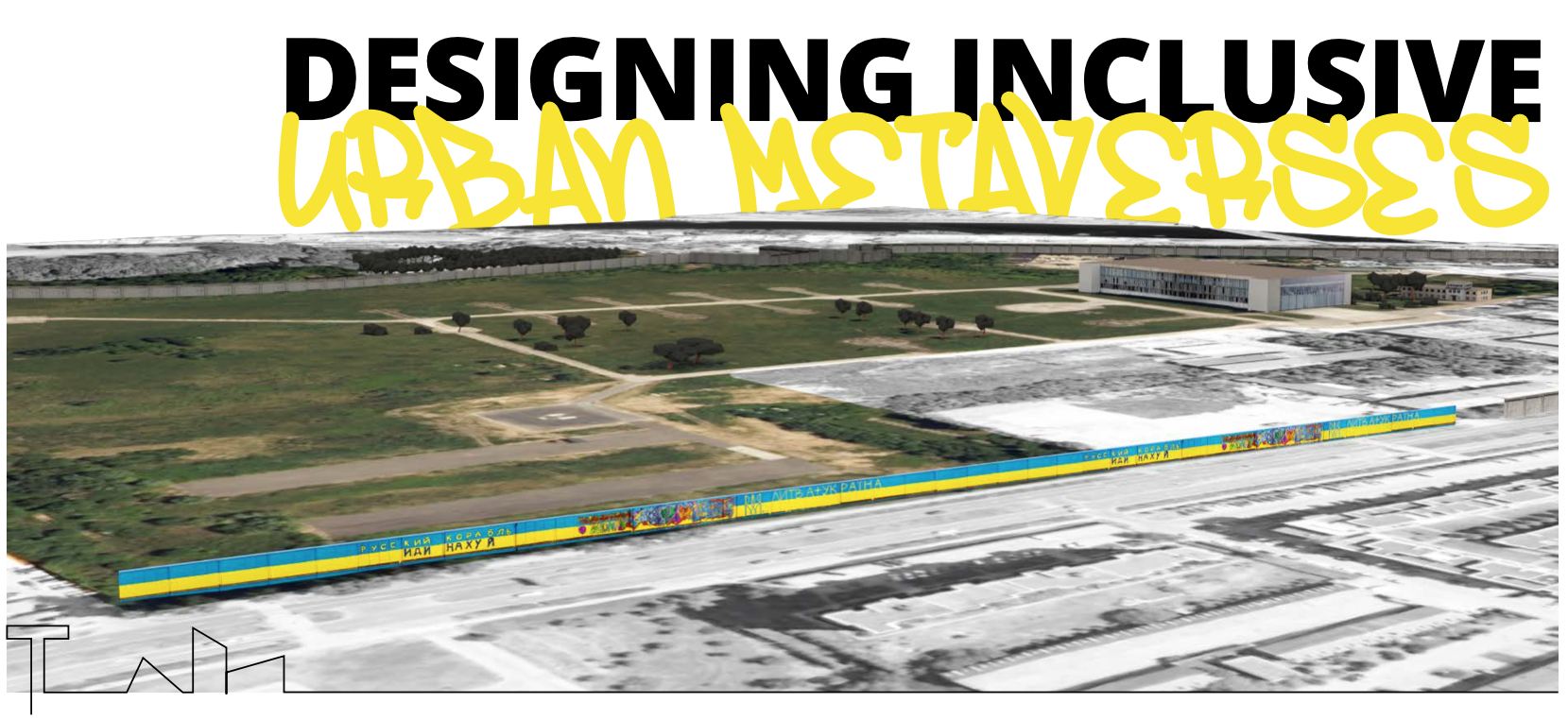'We believe that a healthy society is fuelled by informed debate, and is capable of nourishing collective imaginaries without digressing into dystopia. It is likely public institutions will look into the metaverse in the coming years as a tool to innovate their functioning, exactly as they have been looking into the digitalisation of public services for some years now. In the vast realm of the public sphere, we focus our interest on the urban space and consider translating its materiality into the virtual space as an ideal ground for debating social justice for our future society.'
A “metaverse” is a fully virtual or hybrid environment (this is why we use the term “Extended Reality”, encompassing both) that relies on a combination of technologies (Virtual Reality, Augmented Reality, Blockchain, Artificial Intelligence). “Metaverse” territories are still in their infancy and concentrated in the entertainment and real estate industries. The enabling technologies are R&D priority at the moment: as a matter of fact, running the metaverse race is an investment on future commercial opportunities in endless application fields, included the urban context.
The manifesto is the first step of an interdisciplinary, collective reflection on urban and civic applications of “metaverse” platforms. We are a diverse group of practitioners, researchers and citizens from different backgrounds. We aim to deliver the first design guidelines for inclusive urban metaverses, by working on the (so far) fictional case study of building a civic metaverse in Kaunas (Lithuania) that mirrors the urban regeneration area of Aleksotas Innovation Industry Park (AIIP). By investigating the requirements of an inclusive urban metaverse in Kaunas, we want to highlight the challenges of deploying Extended Reality (XR) in cities through the lens of social justice. The Kaunas metaverse is an experiment in collective imaginaries through which we hope to inspire other cities to to conceptualise their digital territories as enhancers of inclusiveness and avoid technosolutionist approaches.
The manifesto and the related workshops and gatherings are organised within the T-Factor project as activities of the T-Lab “Citizen-led smartness” in the pilot city of Kaunas (Lithuania).The “Citizen-led smartness” T-Lab is led by Futuribile and supported by the Service Design dept. of Aalborg University. The Lithuanian leading partners are KTU and Design Library.
In the regeneration process, we are challenged with transitioning the area’s identity from a soviet military connotation to an “innovation sandbox” while activating participatory processes that allow citizens to appropriate and transform the site’s legacy, identity and physical space. Since the area presents a variety of legal and infrastructural constraints for temporary urbanism tactics, we look into digital placemaking as means to provide a viable meanwhile strategy for engagement and sensemaking. As cities across the world prepare for the next step of the “smart city” and look into Extended Reality (XR) as a means to provide services to citizens and optimise the city, our ambition is to provide the first set of basic guidelines to orient the Extended City towards social justice.
Read the Manifesto!
Authors: Marta Arniani, Futuribile; Lorenzo Piazzi, Kaunas Technology University
- Co-creative and community-led meanwhile
Urban metaverse inclusive design principles
Where to start from for designing urban services and spaces in the metaverse? Follow these recommendations to ideate platforms that operate under a social justice lens.
Data Justice Workshop
Harvest citizen knowledge and create a bottom-up dataset about an urban regeneration area

